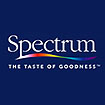NOAA:
Studies Affrim Seafood to be a Healthy Food
Choice
Americans
can decrease their risk for heart disease
by substituting seafood for other animal
proteins, according to the Institute of
Medicine of the National Academies. A
government-sponsored study, released today
by the Institute, finds that seafood is
rich in nutrients, low in saturated fats,
and should be incorporated more into the
American diet to reduce the risk of early
death by heart disease - the primary cause
of death in this country. These findings
affirm dietary guidelines established
by the U.S. Department of Agriculture.
The National Oceanic and Atmospheric Administration,
with support from the Food and Drug Administration,
sponsored this independent study titled,
"Seafood Choices: Balancing Benefits
and Risks." Both agencies seek to
simplify the message for consumers and
help the public understand how to maximize
important health benefits of eating seafood
while minimizing exposure to environmental
contaminants found in nearly every food
source, including fish.
"NOAA is proud to help bring this
potentially life-saving information to
the public's attention, especially in
light of the alarming rates of death by
heart disease among Americans," said
Bill Hogarth, director of NOAA Fisheries
Service. "With fish populations rebuilding
to sustainable levels and under tight
harvest controls in U.S. waters, Americans
should enjoy seafood as part of a healthy
diet."
In spite of some concern about environmental
contaminants, the study concludes that,
on balance, "seafood is a nutrient-rich
food that makes a positive contribution
to a healthful diet." The findings
advise all Americans to eat seafood regularly.
Those who eat more than two servings per
week should incorporate a variety of species
into their diet to benefit from the variety
of nutrients in different species and
to avoid accumulated exposure to environmental
contaminants.
The study affirms federal guidance tailored
for women who are pregnant, nursing or
may become pregnant, and children under
age 12. These segments of the population
can consume safely 12 ounces of fish per
week, including six ounces of white canned
tuna, but should avoid large predatory
fish such as shark, swordfish, tilefish,
and king mackerel. The study highlights
scientific evidence that seafood benefits
fetal brain development, and encourages
pregnant women to incorporate a variety
of seafood into their diet.
As the study points out, seafood is safer
today than in previous decades. Authors
of the report emphasize that many environmental
pollutants have been declining, including
persistent organic compounds such as PCBs,
pesticides and other chemicals.
Consistent with the Institute's recommendation,
the federal government continues to improve
monitoring controls for both domestic
and imported seafood to address safety
concerns, and NOAA continues to develop
better methods for detecting environmental
conditions that potentially could affect
seafood safety. NOAA works with a number
of government and state agencies and private
organizations to increase seafood safety
research, monitoring, early detection,
identification, and warning.
NOAA is involved with additional studies
currently underway to fill some of the
data gaps identified by the Institute
related to omega-3 fatty acids, selenium,
and other nutrients found in seafood,
as well as contaminants such as methyl
mercury and PCBs.
The Institute recommends that NOAA establish
an interagency working group to improve
consumer information and put health benefits
of consuming seafood into perspective
for the public. NOAA is taking the lead
to work with other appropriate federal
agencies to develop and test consumer
messages and develop new Web-based tools
that will allow consumers to generate
tailored seafood consumption guidance
based on their personal demographics.
An additional study to be released tomorrow
in the Journal of the American Medical
Association concludes that the benefits
of eating seafood far outweigh perceived
risks. Researchers with the Harvard School
of Public Health conducted the study,
"Fish Intake, Contaminants, and Human
Health: Evaluating the Risks and the Benefits."
The paper points out that even modest
consumption of fish reduces risk of coronary
death by 36 percent and total mortality
by 17 percent. Consistent with the Institute
study, the Harvard authors recommend consumers
vary the species of fish in their diets
and limit intake of large predatory species,
which are highest in mercury content.
The Harvard study concludes that avoidance
of seafood consumption due to perceived
health risks could result in thousands
of needless deaths per year due to coronary
heart disease and suboptimal neurodevelopment
in children.
NOAA Fisheries Service is dedicated to
protecting and preserving our nation's
living marine resources and their habitat
through scientific research, management
and enforcement. NOAA Fisheries Service
provides effective stewardship of these
resources for the benefit of the nation,
supporting coastal communities that depend
upon them, and helping to provide safe
and healthy seafood to consumers and recreational
opportunities for the American public.
In
2007 the National Oceanic and Atmospheric
Administration, an agency of the U.S.
Commerce Department, celebrates 200 years
of science and service to the nation.
From the establishment of the Survey of
the Coast in 1807 by Thomas Jefferson
to the formation of the Weather Bureau
and the Bureau of Commercial Fisheries
in the 1870s, much of America's scientific
heritage is rooted in NOAA.
NOAA is dedicated to enhancing economic
security and national safety through the
prediction and research of weather and
climate-related events and information
service delivery for transportation, and
by providing environmental stewardship
of our nation's coastal and marine resources.
Through the emerging Global Earth Observation
System of Systems (GEOSS), NOAA is working
with its federal partners, more than 60
countries and the European Commission
to develop a global monitoring network
that is as integrated as the planet it
observes, predicts and protects.
On the Web:
NOAA Fisheries: www.nmfs.noaa.gov
NOAA's Seafood & Health page: www.nmfs.noaa.gov/seafood.htm
NOAA: www.noaa.gov
NOAA—
National Oceanic and Atmospheric Administration
U. S. DEPARTMENT OF COMMERCE
WASHINGTON, DC














